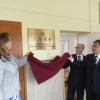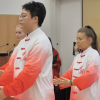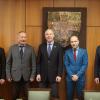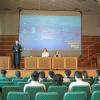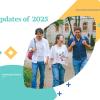The University of Pécs (PTE) International Centre's Pécs Summer School Program is open to students again this year, with a large number of courses being prepared for the summer. We asked Dr. Gyöngyi Pozsgai, Head of the Study Abroad and Summer School Office of the PTE International Centre, about the program.
When was the Pécs Summer School program first launched, and what kind of courses are waiting for students this year?
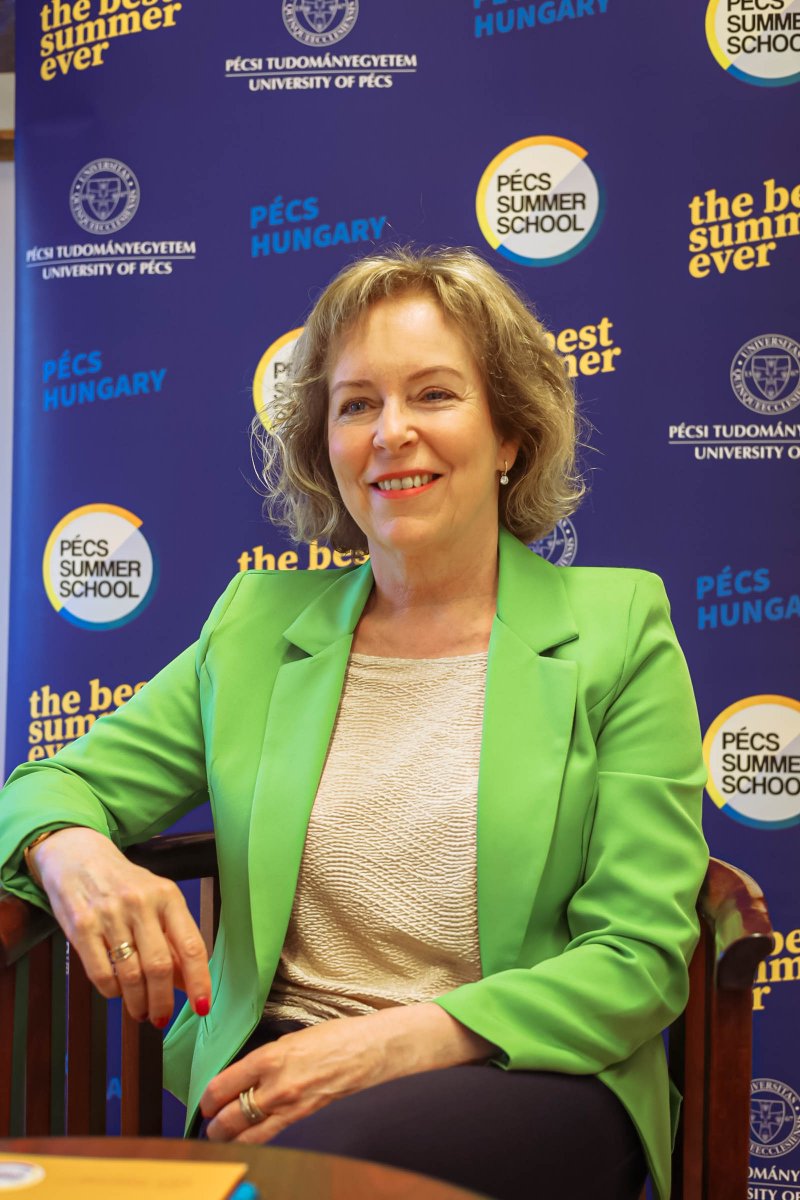 The program was established in 2016 as part of the Internationalization Strategic Program, with the aim of organizing an increasing number of summer schools at the University of Pécs every year. The main goal was to create the so-called "Summer Trimester", to colour the summer with more and more international summer school programs in different thematic areas. Thanks to the large number of summer school programs, PTE has become a market leader in this field in Hungary.
The program was established in 2016 as part of the Internationalization Strategic Program, with the aim of organizing an increasing number of summer schools at the University of Pécs every year. The main goal was to create the so-called "Summer Trimester", to colour the summer with more and more international summer school programs in different thematic areas. Thanks to the large number of summer school programs, PTE has become a market leader in this field in Hungary.
Summer schools enhance the international visibility of the university, expand its international training portfolio, increase the number of foreign students, and last but not least, bring life to the city during the summer when the spring semester has already ended.
This way, we can also utilize university facilities in the summer that would otherwise remain empty. After successful summer programs, more and more students return to the University of Pécs for semester-long studies or even full degree programs.
Over the past years, it has been proven that there is a great demand for the Pécs Summer School program, and in the meantime, we have also learned what types of programs are worth introducing. We are delighted that the number of faculties collaborating with us on these projects is continuously increasing.
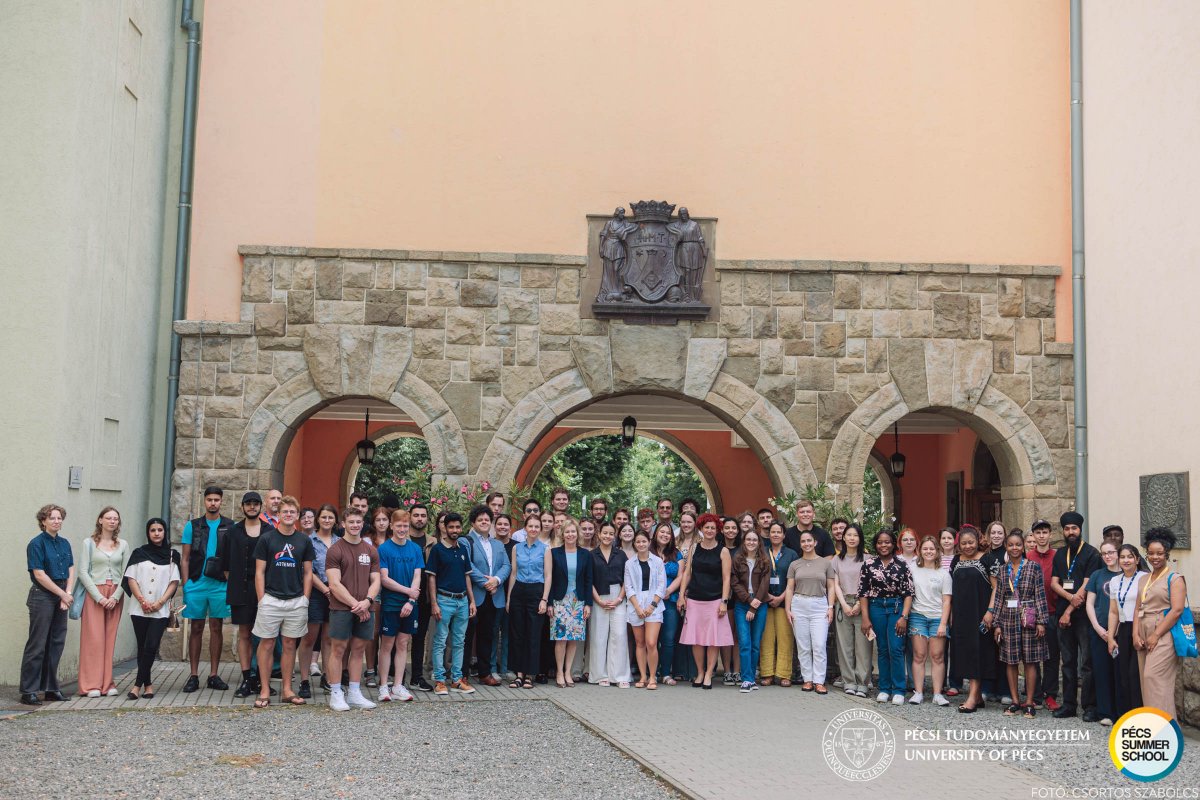
We offer different types of programs for students and partner institutions. We have so-called open summer school programs, which are available for applicants from all over the world. In 2025, we announced three two-week open summer schools: European Studies, Leadership Skills, and the Public Speaking and Debate Academy. Additionally, students can apply for a four-week program: the International Human Rights Law and Debate Academy, which we organized in collaboration with the Faculty of Law, and the combined European Studies and Leadership Skills program.
Furthermore, we also welcome student groups from American partner universities for so-called faculty-led programs, where they are accompanied by their own professors. This year, we are organizing the African Migrations Today: Focus on Central Europe program together with the University of Florida, lasting for three weeks.
We have a third type of program, the so-called tailor-made program, in which the partner university determines the field of study and the duration of the program, and we organize the summer school accordingly, exclusively for the students of that institution.
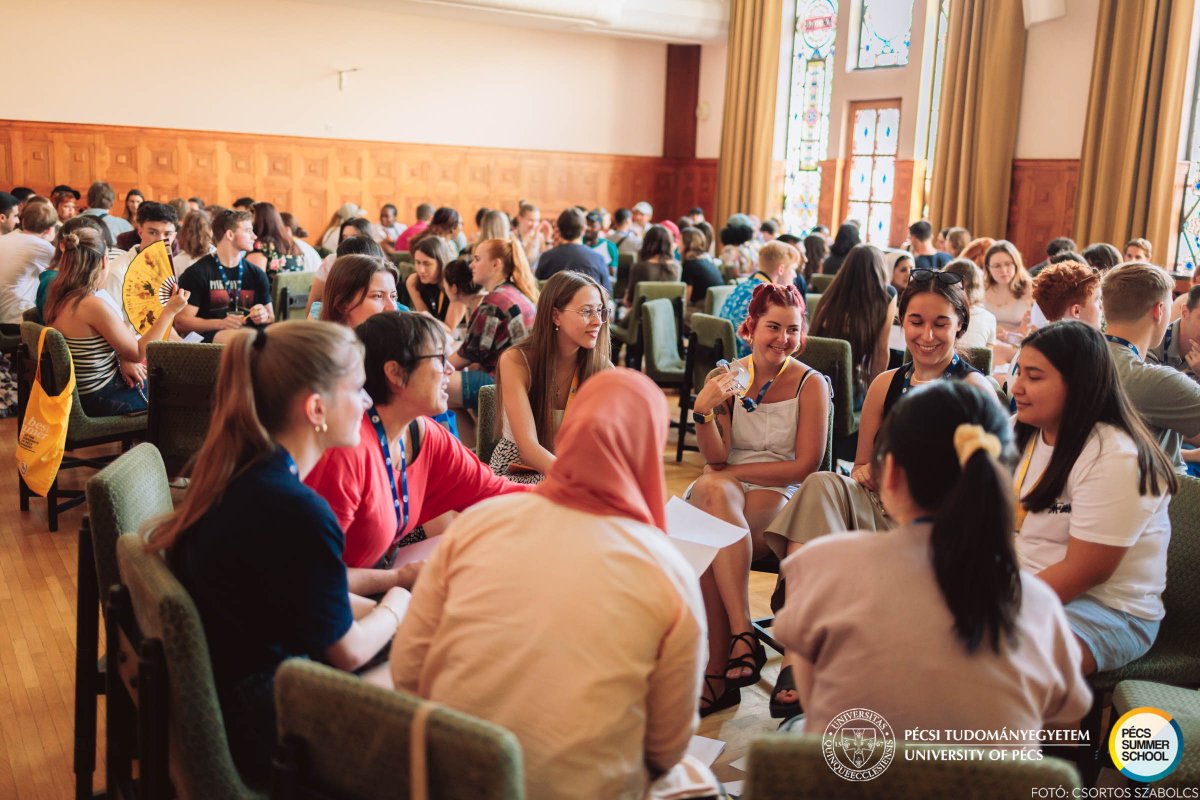
Recently, a delegation from the Rector’s Office of the University of Pécs visited China, resulting in the organization of a law-themed summer school for a student group from Nanjing Audit University this year, titled Combating Corruption and Financial Crime in the 21st Century. The academic program is provided by the Faculty of Law, while the full program coordination is handled by the Study Abroad and Summer School Office.
Together with the lecturers of the Faculty of Humanities and Social Sciences, we are organizing the European Studies tailor-made summer school for a student group from the University of Electronic Science and Technology of China. Additionally, we are offering programs for other Chinese universities in collaboration with the Faculty of Health Sciences, covering topics such as New Trends and Techniques and Stress Management and Resilience.
For universities in Nanjing, we have proposed a virology-themed program in cooperation with the Szentágothai Research Centre, titled New Ways in Molecular Genetic and Genomic Research and Diagnostics.
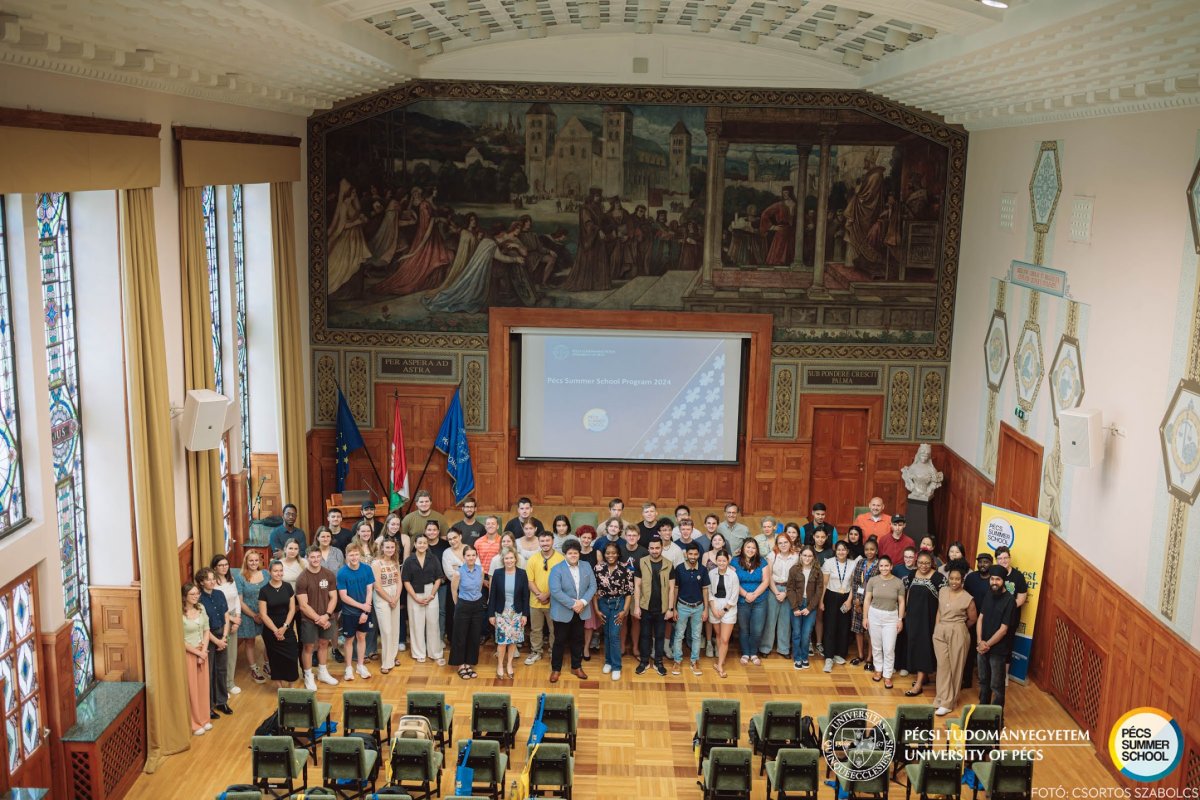
We are also organizing a summer school this year for students of the European Digital UniverCity (EDUC) University Alliance, which is a research-based program for MSc and PhD students on the topic of Intercultural Sensitivity. This program is being developed in collaboration with the Faculty of Humanities and Social Sciences and lecturers from the University of Cagliari.
One of the novelties this year is that we are also offering a summer school for lecturers. In collaboration with the Faculty of Law, we have developed the program Postmodern Practical Challenges of Human Rights, to which we are inviting lecturers from Mongolian partner universities.
The Summer School series is concluded by the online Debate Academy, which we are organizing jointly with the Compostela Group of Universities. It has been one of the most popular programs of the university network for years.
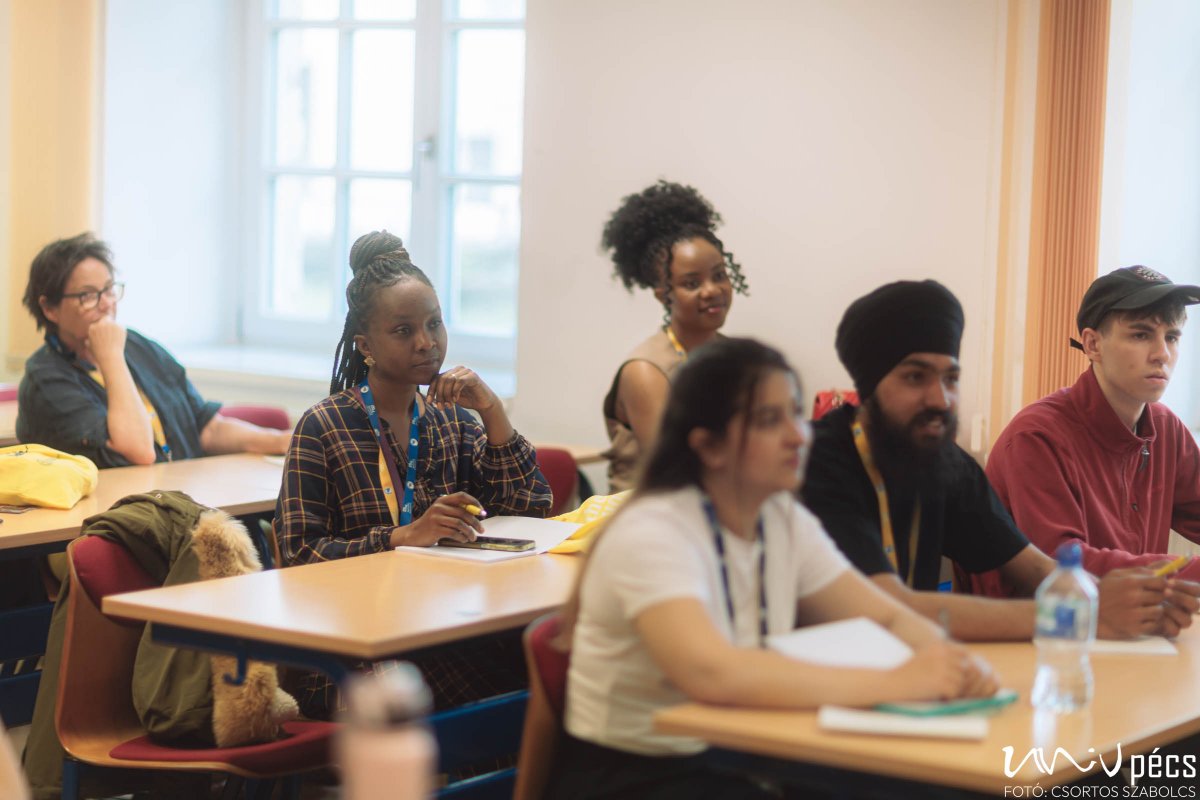
To successfully organize the summer school, we apply for numerous scholarship programs. For years, we have been awarded participation in the Intergovernmental Summer School Scholarship Program, as well as the Hungarian Diaspora Scholarship. Last year, we succeeded in becoming a host institution for the UK Turing Scheme program, and this year we are once again welcoming students with the support of the CEEPUS program.
Currently, we are actively recruiting, and we hope that more students will join our summer schools. We are also offering these programs to PTE students, who can participate at a discounted price.
What additional benefits can the Summer School offer to students who are here in a foreign country, in an unfamiliar environment, and in a relatively small city during the summer?
We provide a special experiential learning environment for them. Students not only get to know European culture, but they also study and have fun with students from all over the world. Mornings are filled with lectures, while afternoons and evenings offer cultural and community programs. These include educational activities such as a quiz about European culture and the Intercultural Evening, where students present their own cultures. The program also includes sports and other community events, such as a Hungarian folk dance night, dragon boat races, and a darts competition. Furthermore, students get to explore the cultural values of Pécs through city tours and museum visits. We also align our smmer school with the Zsolnay Light Festival, so our students can participate in this wonderful city event.
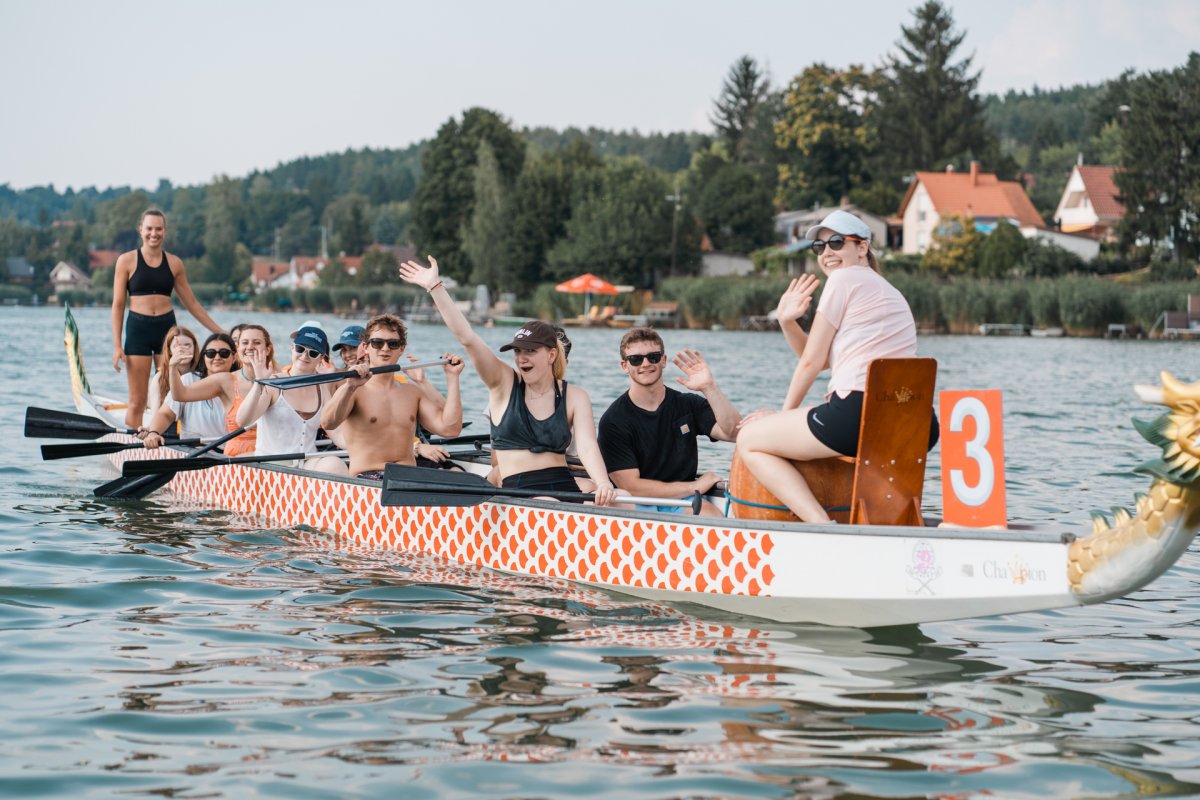
What countries do the students typically come from?
Students come from all over the world, from the United States to Great Britain and Japan. Our Intercultural Evening is particularly exciting because of the diverse cultures represented by the students.
Last year, participants came from 40 countries across 4 continents.
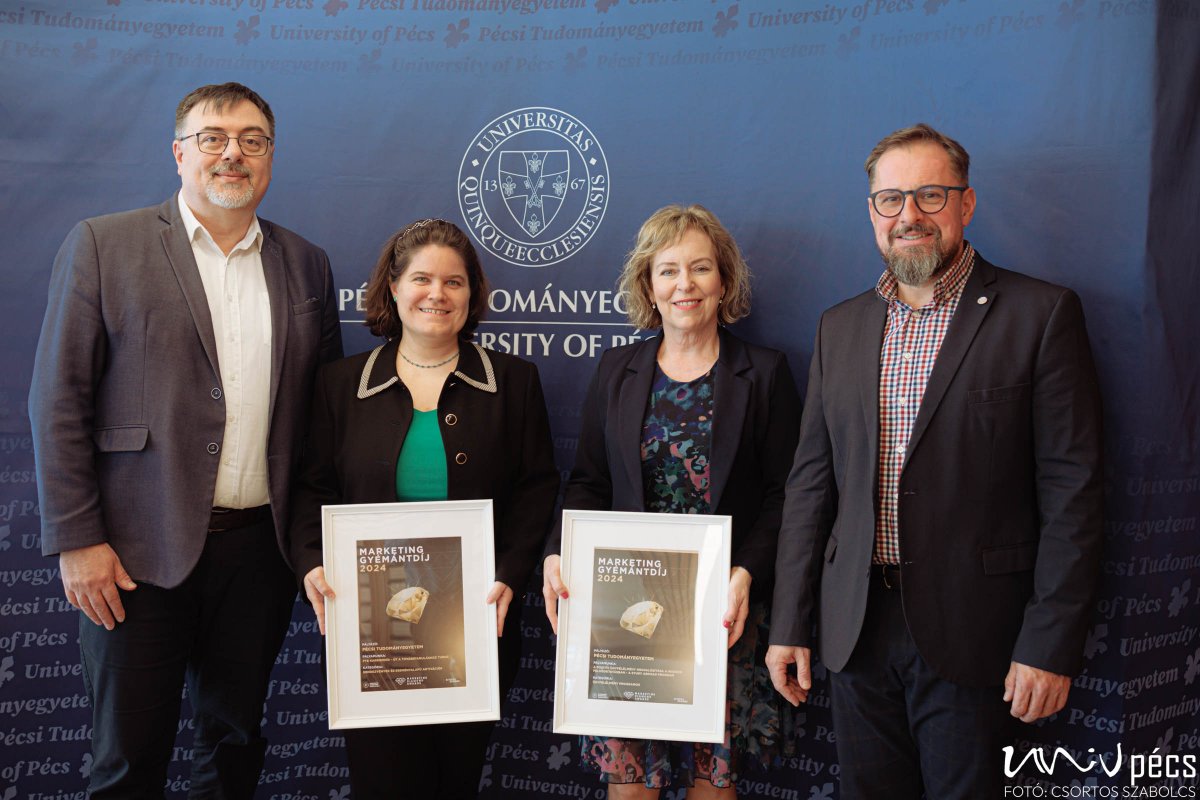
The program has received several accolades in recent years...
We have won the Marketing Diamond Award from the Hungarian Marketing Association twice, which is largely thanks to the excellent teamwork. I have fantastic colleagues, Bíborka Bartis and Boglárka Vecsánin, who work on these programs with incredible enthusiasm and energy. Hungarian mentor students are also crucial participants in the summer school. They ensure that the students feel comfortable, that everything runs smoothly, and they also help the students learn more about Hungarian culture.
Can students receive a micro-certification after completing the programs?
Yes. In the past, we provided certificates, but starting from last year, thanks to joint developments within the European Digital UniverCity (EDUC) University Network,
we now offer micro-certifications for completing each program.



 The program was established in 2016 as part of the Internationalization Strategic Program, with the aim of organizing an increasing number of summer schools at the University of Pécs every year. The main goal was to create the so-called "Summer Trimester", to colour the summer with more and more international summer school programs in different thematic areas. Thanks to the large number of summer school programs, PTE has become a market leader in this field in Hungary.
The program was established in 2016 as part of the Internationalization Strategic Program, with the aim of organizing an increasing number of summer schools at the University of Pécs every year. The main goal was to create the so-called "Summer Trimester", to colour the summer with more and more international summer school programs in different thematic areas. Thanks to the large number of summer school programs, PTE has become a market leader in this field in Hungary.


